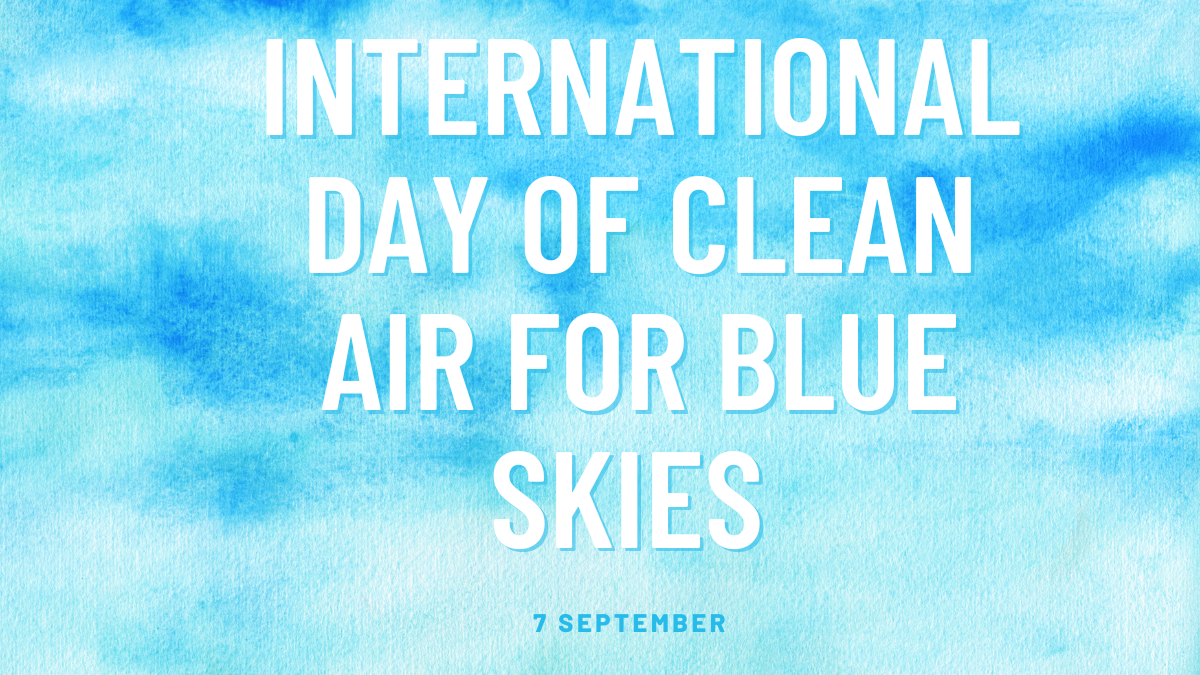Air pollution stands as the most significant environmental health risk of our time, with far-reaching consequences for human health, climate change, economic stability, and agricultural productivity. Recognizing the urgent need for action, the United Nations has designated September 7th as the International Day of Clean Air for blue skies. This observance serves as a global call to action, urging governments, corporations, civil society, and individuals to Invest in #CleanAirNow.
The Dual Impact of Air Pollution
Health Consequences
Air pollution poses severe risks to human health, primarily due to microscopic particles that penetrate deep into our respiratory and circulatory systems. These pollutants are responsible for:
- Approximately one-third of deaths from stroke, chronic respiratory disease, and lung cancer
- One quarter of deaths from heart attacks
- Increased incidence of asthma and chronic respiratory illnesses, particularly due to ground-level ozone
Climate Implications
Beyond its direct health impacts, air pollution significantly contributes to climate change. Short-lived climate pollutants (SLCPs) are particularly concerning, as they:
- Contribute to near-term warming of the planet
- Persist in the atmosphere for periods ranging from a few days to several decades
- Offer the potential for rapid climate benefits when reduced
The Global Burden of Air Pollution
Air pollution is a pervasive problem that transcends borders, affecting communities worldwide. Key statistics include:
- An estimated 6.5 million premature deaths globally in 2016 attributed to indoor and outdoor air pollution
- Disproportionate effects on vulnerable populations, particularly in developing countries
- Projections suggesting a 50% increase in premature deaths due to ambient air pollution by 2050 without aggressive intervention
Economic and Social Costs
The impact of air pollution extends beyond health, affecting various sectors of society:
- Reduced work productivity
- Increased healthcare costs
- Negative effects on tourism and economic growth
- Compromised food security due to impacts on crops
International Day of Clean Air for Blue Skies: A Call to Action
Recognizing the urgency of addressing air pollution, the United Nations General Assembly established the International Day of Clean Air for blue skies. This observance aims to:
- Raise awareness about the importance of clean air for health and daily life
- Highlight the connection between air quality improvement and climate change mitigation
- Promote international cooperation in efforts to improve air quality
- Encourage action at all levels to combat air pollution
Clean Air and Sustainable Development
The pursuit of clean air is integrally linked to broader sustainable development goals:
- The 2030 Agenda for Sustainable Development recognizes air pollution abatement as crucial for achieving the Sustainable Development Goals
- Countries have committed to promoting sustainable development policies that support healthy air quality in urban settings
- Improving air quality is seen as a key factor in creating sustainable cities and human settlements
Strategies for Reducing Air Pollution
Addressing air pollution requires a multi-faceted approach:
- Policy Implementation: Developing and enforcing stricter air quality standards
- Technological Innovation: Investing in clean energy technologies and pollution control measures
- Urban Planning: Designing cities to reduce emissions and promote cleaner transportation options
- Public Awareness: Educating communities about the impacts of air pollution and ways to reduce individual contributions
- International Cooperation: Collaborating across borders to address transboundary air pollution issues




 India Holds Spot as No. 2 Buyer of Russi...
India Holds Spot as No. 2 Buyer of Russi...
 Jharkhand Budget 2026-27: ₹1.58 Lakh Cro...
Jharkhand Budget 2026-27: ₹1.58 Lakh Cro...
 Can Rural Women Save Tigers? Palamu’s Va...
Can Rural Women Save Tigers? Palamu’s Va...








